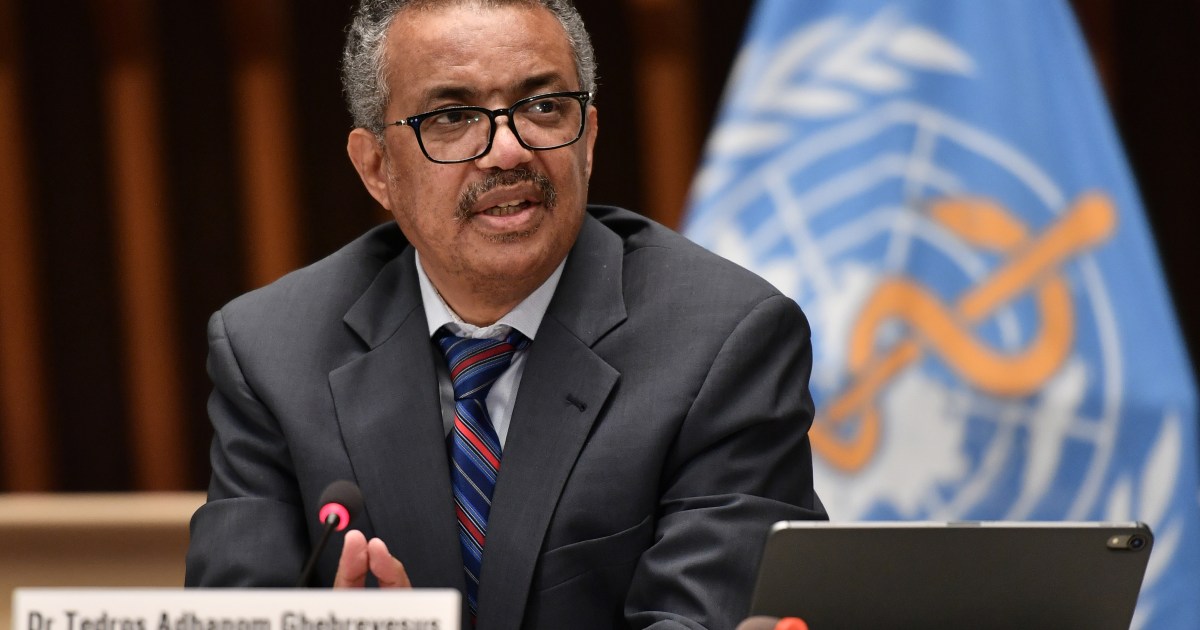Confusion and complacency in addressing COVID-19 means that the pandemic is far from over, but it can be brought under control within months with proven public health measures, the head of the World Health Organization said.
“We also want to see societies and economies reopen, and travel and trade resumed,” WHO Director-General Tedros Adhanom Ghebreyesus said in a newsletter on Monday.
‘But at the moment, intensive care units are overflowing in many countries and people are dying – and this is completely avoidable.
‘The COVID-19 pandemic is far from over. But we have many reasons for optimism. The decline in cases and deaths during the first two months of the year shows that this virus and its variants can be stopped, ‘he added, saying the transmission is driven by’ confusion, complacency and inconsistency in public health measures’.
India has overtaken Brazil to become the country with the second highest number of infections worldwide after the United States, because it has a huge second wave. India has given about 105 million vaccine doses among a population of 1.4 billion.
The WHO team leader on COVID-19, Maria Van Kerkhove, told the newsletter that the pandemic has grown exponentially, with an increase of nine percent in cases last week, the seventh consecutive week with increases and an increase of five percent in deaths.
Tedros said restaurants and nightclubs in some countries were full and that the markets were open and crowded with few people taking precautions.
“Some people seem to take the approach that if they are relatively young, it does not matter if they get COVID-19,” he said.
‘Africa must expand vaccine production’
Meanwhile, African leaders and international health officials have called for expanding the production of coronavirus vaccines on the continent, including by forging partnerships to promote expertise and investment.
Africa has struggled to procure coronavirus vaccines and imports the vast majority of its medicines and medical equipment, relying on overseas supplies.
The predominantly poor countries are lagging behind in the global coronavirus vaccination contest with less than 13 million doses administered so far to the 1.3 billion people on the continent, the Africa Centers for Disease Control and Prevention (Africa CDC ) said last week.
The director general of the World Trade Organization, Ngozi Okonjo-Iweala, said on Monday that it was “morally unscrupulous and a serious economic hit” that only 1.1 per 100 Africans received a vaccine, while the rate in North America was more if 40 per 100 was.
“Between a stronger fall and a weaker setback, Africa will have lost ground to other regions,” she said at a virtual conference organized by the African Union. “To promote growth, trade and livelihoods, we need to get vaccines for everyone who needs them.”
South African President Cyril Ramaphosa, the COVID-19 reaction champion of the African Union and leader of the African country hardest hit by the coronavirus in terms of infections and deaths, said the medium-term strategy should be to expand manufacturing facilities to local hubs.
“We also need to enter into sustainable partnerships with entities in both the developed world and the developing world,” he said.
African countries, he added, could seek guidance from countries such as India and Brazil on how to develop their generic pharmaceutical industries.
Africa now imports 99 percent of all its vaccines, but it aims to reduce imports to about 40 percent by 2040, said Africa CDC director John Nkengasong.
Okonjo-Iweala said building more manufacturing capacity would require long-term investments, but countries could offer incentives such as lowering tariffs on raw materials.
She urged WTO members to find a “pragmatic outcome” to a proposal by India and South Africa to suspend vaccines and other medical patents during the COVID-19 pandemic to transfer technology to manufacturers with free production capacity to speed up.
Tedros said the WHO supports calls for manufacturers to remove barriers to access to critical health products.
“We continue to call on companies to share knowledge,” he said during the conference.
